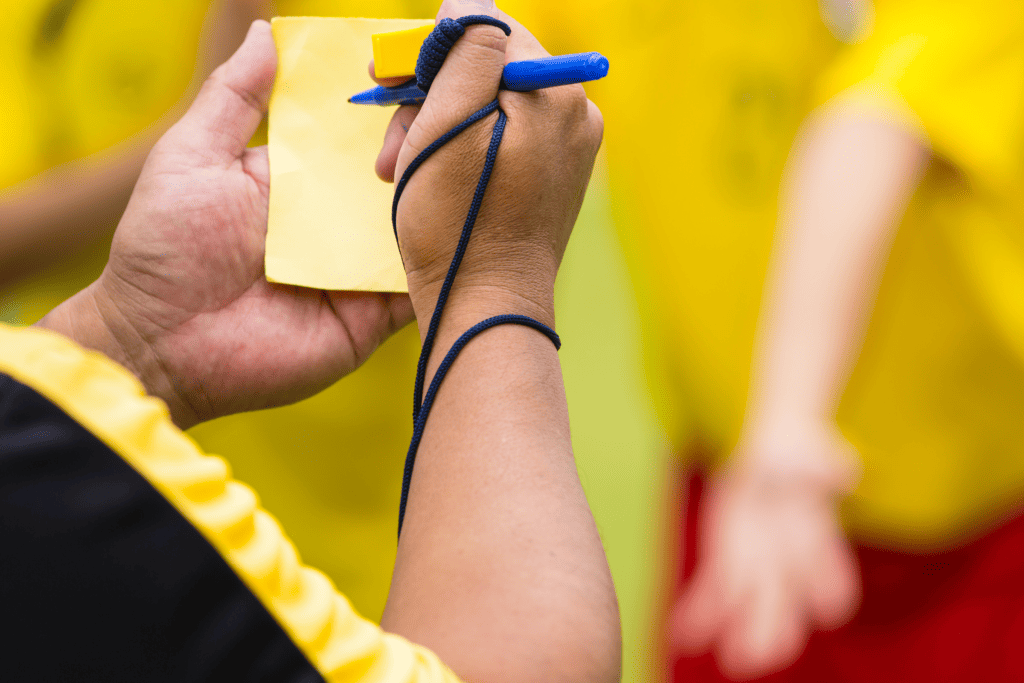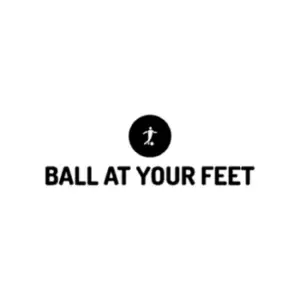Soccer referees work together during matches to ensure a safe and fair playing environment for the teams, coaches, staff members, and fans involved. Though a supporting role, the fourth official is essential for enforcing the laws of the game.
Related: How Many Referees are there in Soccer? (3 Different Types)
What does the fourth official do in soccer games?
The fourth official is the referee on the sideline, whose primary responsibility is to enforce the technical area rules and assist the other three referees at all times. They ensure substitutes are properly equipped and accounted for and indicate the minimum amount of stoppage time the center referee intends to add to each half.
Overall, the fourth official has much on their plate in soccer, especially if either teams’ coaches or substitutes can’t obey the technical area rules.
Read on for more detailed information about what the fourth official does throughout the game.
Table of Contents
What is a fourth official in soccer?
The fourth official in soccer is exactly that; the fourth referee of a soccer match. They work with the center and assistant referees to officiate the game according to International Football Association Board laws.
The fourth official is one of the four referees in a soccer game. The fourth ref stands on the sidelines during professional and high-level matches and assists the other three officials. They handle substitution protocol and update the match log with subs, cautions, and goals.
They play an essential role, even though they aren’t technically on the field with the other three referees.
The fourth referee takes some of the responsibility away from the other three refs, who are focused on everything happening in the match.
Like the other referees, the fourth official has pre- and post-game roles to fulfill, which I will cover in the next section.
What does the fourth official do in soccer?
The fourth referee has just as important of a job as the center referee. As I just mentioned, the fourth official is busy at each point during a game, even after it ends. What do they do before, during, and after matches?
Let’s move to the subheadings below for the fourth official’s roles and responsibilities according to the IFAB.
Before the match
The fourth referee’s job starts before the game begins.
Before the match, the fourth official will:
- Review each team sheet and ensure only those named are inside the technical area
- Review the technical area rules with each technical area occupant
- Inform and request the physio that they must not enter the field without the fourth ref’s permission
- Ensure the electronic substitution board and communication devices function properly
- Check the PSI of each soccer ball
- Deliberate between the center and assistant referees to decide who will replace a referee should one be unable to proceed with the match.
During the match
Once the match starts, the fourth official’s focus shifts.
During the match, the fourth official will:
- “Assist the referee at all times;” along with controlling the technical area, they will maintain eye contact with the other three referees throughout the match
- Update the match log with cautions, substitutions, goals, and red cards with who and when they happened
- Facilitate substitution according to protocol; ensure players are wearing proper equipment, and relay substitution information to the center referee before displaying that information on the electronic number board (if available)
- Allow entry onto the field of the physio or doctor after receiving the go-ahead from the center official
- Supervise the technical area and its occupants; the fourth official will notify the center referee of irresponsible behavior by any of its occupants
- Alert the center referee of verbal abuse from technical area occupants.

After the match
The fourth official stilll has work to do once the final whistle is blown.
After the match, the fourth official will:
- Supervise post-game interaction between players and coaches, including when walking through the tunnel and into their respective locker rooms
- Assist the center referee with the full-match report, including misconduct, substitutions, or other substantial incidents
- Advise the referee of any technical area violations and, if applicable, advise the referee of any reports being made to higher match authorities.
Why is there a fourth official in soccer?
The reasoning for a fourth official is straightforward. Their job is to help maintain a fair and safe playing field by assisting the on-field referees.
Initially, there was a fourth soccer official to replace the center or an assistant referee if either could not proceed with the rest of the match. Now, the fourth official keeps an updated match log, supervises the technical area during the game, and facilitates proper substitution protocol.
The fourth official is the first-choice replacement for a referee deemed unable to officiate the remainder of a match, including either assistant referees or the center official.
The referees decide before the game who will replace who if one of them cannot move on with the rest of the game for whatever reason.
Is the fourth official the same as VAR?
VAR, or video assistant referee, was introduced in the 2019/2020 English Premier League Season. It’s used to keep a closer eye on the rules of the match. But isn’t that what the fourth official is for? Are the fourth referee and VAR the same thing?
The fourth official is not the same as VAR. The fourth official stands on the sideline, inside the technical area between each team’s bench. VAR, or video assistant referee, is an off-field match official who assists the center referee by rewatching and checking important, potentially game-altering moments for rule violations.
Since its introduction, VAR has created a fairer and safer playing atmosphere for players and coaches.
It helps referees make accurate decisions they may have gotten wrong at first glance or missed altogether.
The fourth official is a precursor to VAR and has paved the way for video intervention.
Some viewers don’t like VAR because they think it takes away from the authenticity and flow of the game. If you ask me, VAR is beneficial, as it positively and fairly impacts the game by enforcing its rules.
